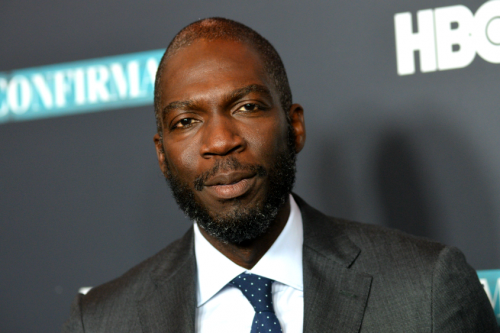Nate Parker’s slave-uprising drama ‘The Birth of a Nation’ couldn’t be more necessary – or powerful. Peter Travers on 2016’s most controversial movie.
Here’s a tough question: Do you judge Nate Parker’s The Birth of a Nation as a film, or put the man behind it on trial as a former student at Penn State in 1999 who was accused of raping an 18-year-old woman – a crime for which he was acquitted. I’ll leave the playing God stuff to social media, where it thrives, and stick to what’s onscreen which, by any standard, is a monumental achievement.
The Birth of a Nation is a passion project for Parker, who labored for seven years to gather the $10 million it took to get this hot potato on the screen. Parker (Beyond the Lights, Arbitrage, The Great Debaters), gives a great elemental performance as Nat Turner, a Virginia-born slave and Baptist preacher who led a 1831 slave rebellion – the bloodiest in U.S. history – that left 60 slaveowners and family members slaughtered, mostly with axes and knives. In retaliation, 200 blacks were butchered. Violence hits like a gut punch in Nation, a title Parker boldly reclaims from the 1915 silent screen Civil War epic in which director D.W. Griffith made heroes of Ku Klux Klansmen. As director, writer, producer and star, Parker his nation’s birth from a black perspective. A surge of righteous indignation courses through the film until all howling hell breaks loose. It’s a stupendous directing debut for an artist who is unflinching in his portrait of a black America pushed to the limit, with the outcome still in play.
Parker wisely builds his film, from a story he co-wrote with Jean Celestin, like a gathering storm. We meet Nat as a child, played by Tony Espinosa, the best friend of the white boy, Samuel Turner (Griffin Freeman), who will grow up to be his master at the cotton plantation owned by the Turner family, from which Nat adopts his surname. Samuel’s mother, Elizabeth (a fully committed Penelope Ann Miller), even teaches Nat to read, mostly the Bible, nothing that will put dangerous ideas in his head. Or so she thinks. As adults, Nat and Samuel, the latter played with glints of moral complexity by Armie Hammer, share confidences, but nothing that questions the absolute supremacy of the slave owner. Nat is savvy enough to persuade Samuel to buy Cherry (the excellent Aja Naomi King), a young slave stripped down by an auctioneer to up her price. She will later become Nat’s wife and the mother of their daughter.
The shift of balance in Nat’s relationship with his master comes when Samuel, at the behest of the unscrupulous Rev. Walthall (Mark Boone Jr.), hires out Nat to preach to slaves on neighboring plantations, using the Bible to teach black subservience. It’s here that Parker lets the dawning realization of horror anchor in Nat’s eyes. Nat sees shocking evidence of sadism, including a brutally graphic scene of a slave, on a hunger strike, getting his teeth knocked out and having food shoved down his throat. Another slave (Colman Domingo) watches his bride (Gabrielle Union) being handed off to a white man for a night’s pleasure. And when Cherry suffers a similar fate at the hands of plantation foreman Raymond Cobb (an fiercely scary Jackie Earle Haley), Nat feels something snap.







Leave a Reply